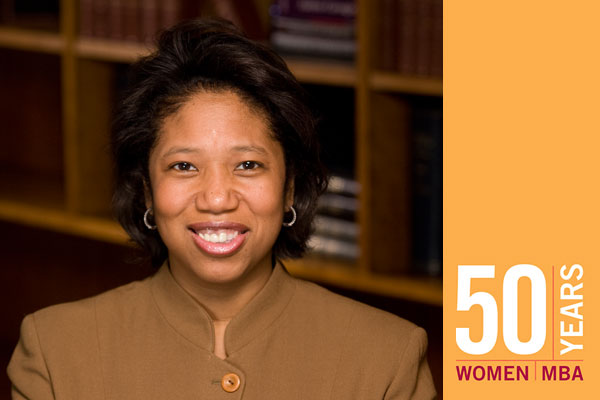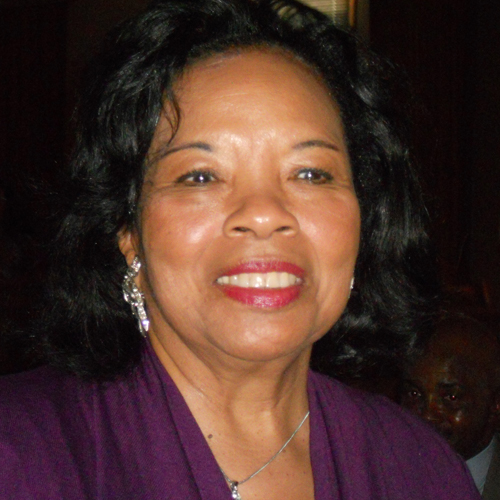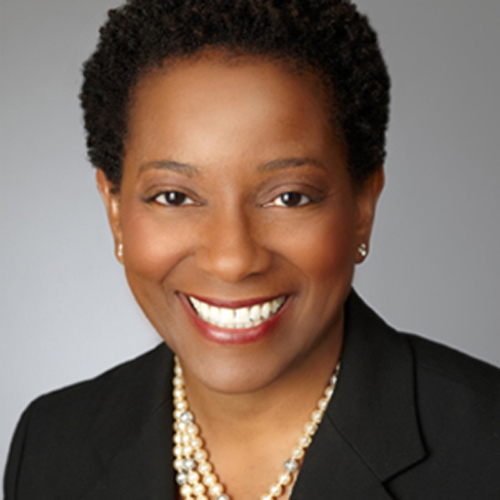
Kim Lew
Biography
Kim Y. Lew was born and raised in New York City, spending her early years in Harlem and then moving to the Bronx when she was school-aged. She is a proud product of the New York City School system, having attended PS 154, PS 9, Mosholu Parkway Junior High School, and the Bronx High School of Science.
What impact did HBS have on your life and the life of others?
When I arrived on the Harvard Business School campus, it felt a little bit like Dorothy landing in Oz. The colors were brighter and more vivid than I had ever experienced and the natives were "different," although some were incredibly familiar. Much like Dorothy, I assumed that this was just another obstacle, a test on the road back home. I didn’t realize that it was really a road of self-discovery. After just two short years, I would be different. I would know that accomplishing greatness lay in believing in what I could do.
Born to teenage parents, I grew up in public housing projects in Harlem and the Bronx. Many of the people in my neighborhood had struggled to graduate from high school and I didn’t know anyone who had gone to graduate school. My father, a Chinese immigrant, worked in the mail room at AT & T after graduating from high school. At the time, Charlie Brown was CEO of the company—and he was an alumnus of the University of Pennsylvania’s Wharton School. In my father’s mind, that made it clear that a business degree from Wharton ensured a high level of success. A law or medical degree was a more familiar path to upward mobility in my neighborhood, but because that early work experience made such an impression on my father, he urged me to apply to Wharton for an undergraduate business degree—after all, if it was good enough for the CEO of AT & T, it was good enough for his daughter. I did, and was accepted. In some ways, it’s a typical immigrant story.
My two years in Boston widened my horizons. I had left New York for just four years to attend college. Penn opened my eyes to new things, but I played it safe there, spending most of my time with people who felt familiar. At HBS, I was spending my days with students from all over the world and from every walk of life, many of whom had worked in jobs that I had never even heard of. These people were each amazing in their own right, but just a little foreign. Not all of them were welcoming, and at times I was offended by the way that they viewed the world and people like me. I remember one of my sectionmates arguing that the lottery and basketball were the only hope that poor people had of getting out of the ghetto. Despite struggling with public speaking and class participation, I was driven to dispute this misconception. This perspective and many others sometimes made it hard to feel welcome, but there were just as many moments when I was amazed by the generosity and thoughtfulness of the people that I met.
The other African Americans who shared that two-year journey were also different and extraordinary, but with them there was something strangely familiar and comforting. Their success was mine, mine was theirs, and we leaned on each other. Fantastical journeys are a bonding experience for everyone. They were my lion, scarecrow and tin man, providing the confidence boost that I occasionally needed to keep pushing through. The challenges and the tests, coupled with all the new information, made me really think through who I was and what I wanted to be. After I graduated, I had a much better sense of that.
I began my post-HBS journey in a fairly safe way, returning to fixed-income investing. But soon enough, the HBS network intervened and presented me with the opportunity to join the Ford Foundation. I knew that that one of Ford’s program areas was poverty elimination, so I saw this as an opportunity to return to my community and work to improve it. Armed with the confidence that I gained at HBS, I applied for a position at the Ford Foundation as an equity analyst investing in technology stocks. I had never invested in equities and had a business, not an engineering, background, so I had none of the requisite skills. But as we are taught at HBS, "Fortune favors the bold." That view has served me well as I have moved from opportunity to opportunity.
I have remained in the foundation community and now manage the endowment of Carnegie Corporation of New York, the oldest private grantmaking foundation in the world. There are very few African Americans managing foundation assets, and I have been told that I am the first African American woman to manage the assets of a foundation of this size. That’s probably true, given the history of representation in this industry, but I hope that changes. Investing on behalf of a foundation is one of the most rewarding career choices that an investor can make. I have the psychological benefit of working for an institution whose principal mission is "doing real and permanent good in the world." This mandate favors boldness, and I credit HBS with giving me the skills, network, and confidence to be bold. I credit my family and my beginnings with ensuring that I know that the world is bigger than I am and that I should do something that makes it better. I am fortunate that every day I get to marry these two.
The best advice that I could give to incoming African American women is that while you are on the road to Baker Scholar, make sure to get to know your classmates and allow them to challenge your beliefs. More importantly, appreciate that these two years are a great opportunity to build your sense of self and appreciate just how phenomenal you are. HBS is exceptional at identifying talent, so if you make it to Oz you have everything you need to accomplish extraordinary things.

